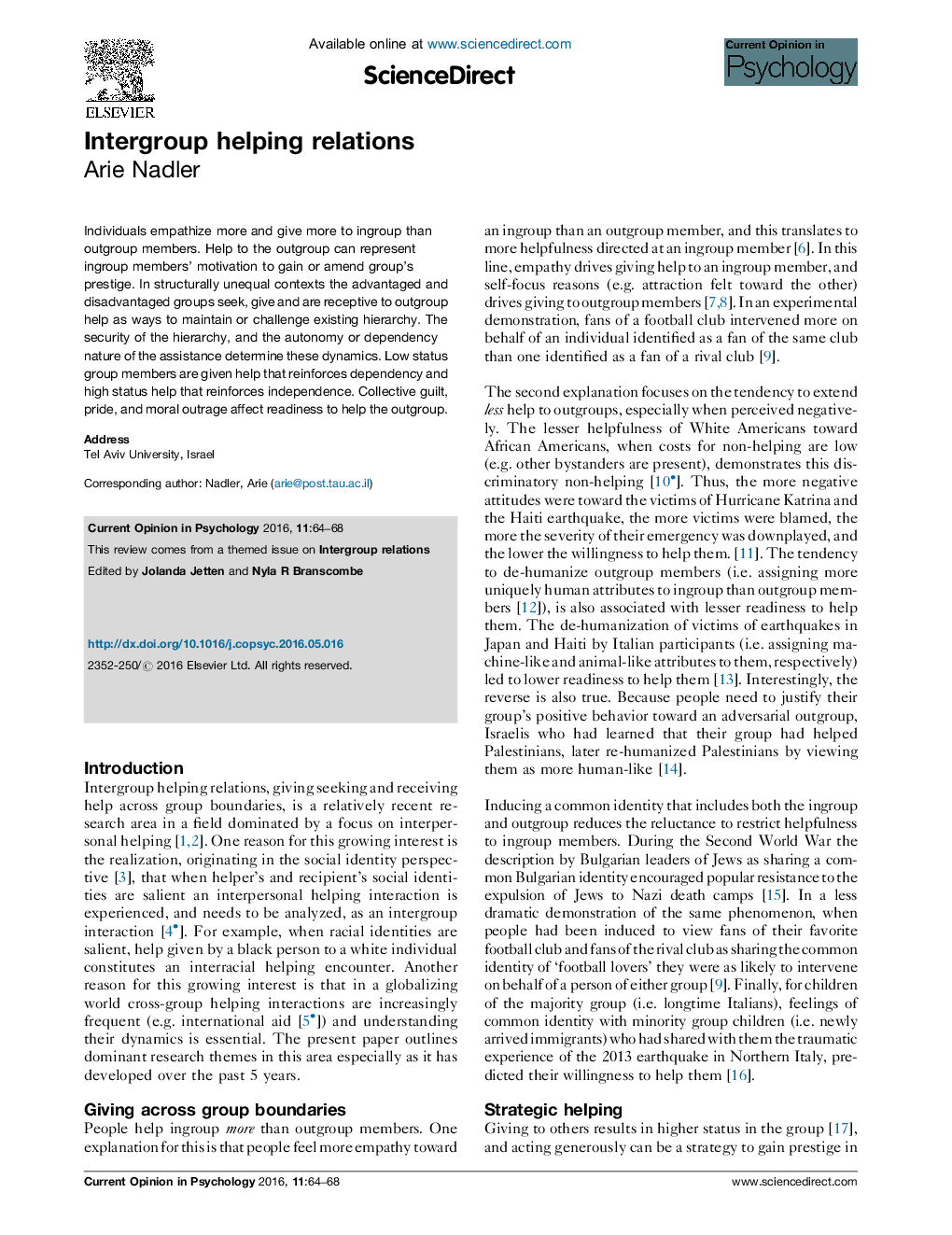| Article ID | Journal | Published Year | Pages | File Type |
|---|---|---|---|---|
| 879245 | Current Opinion in Psychology | 2016 | 5 Pages |
•Help to outgroup may represent strategy to gain collective prestige.•Intergroup helping relations constitute status relations.•Legitimacy and stability of social hierarchy affects helping as status relations.•Help to low status people underscores their dependence on the high status.•Collective feelings of guilt, pride and moral outrage affect intergroup helping.
Individuals empathize more and give more to ingroup than outgroup members. Help to the outgroup can represent ingroup members’ motivation to gain or amend group's prestige. In structurally unequal contexts the advantaged and disadvantaged groups seek, give and are receptive to outgroup help as ways to maintain or challenge existing hierarchy. The security of the hierarchy, and the autonomy or dependency nature of the assistance determine these dynamics. Low status group members are given help that reinforces dependency and high status help that reinforces independence. Collective guilt, pride, and moral outrage affect readiness to help the outgroup.
